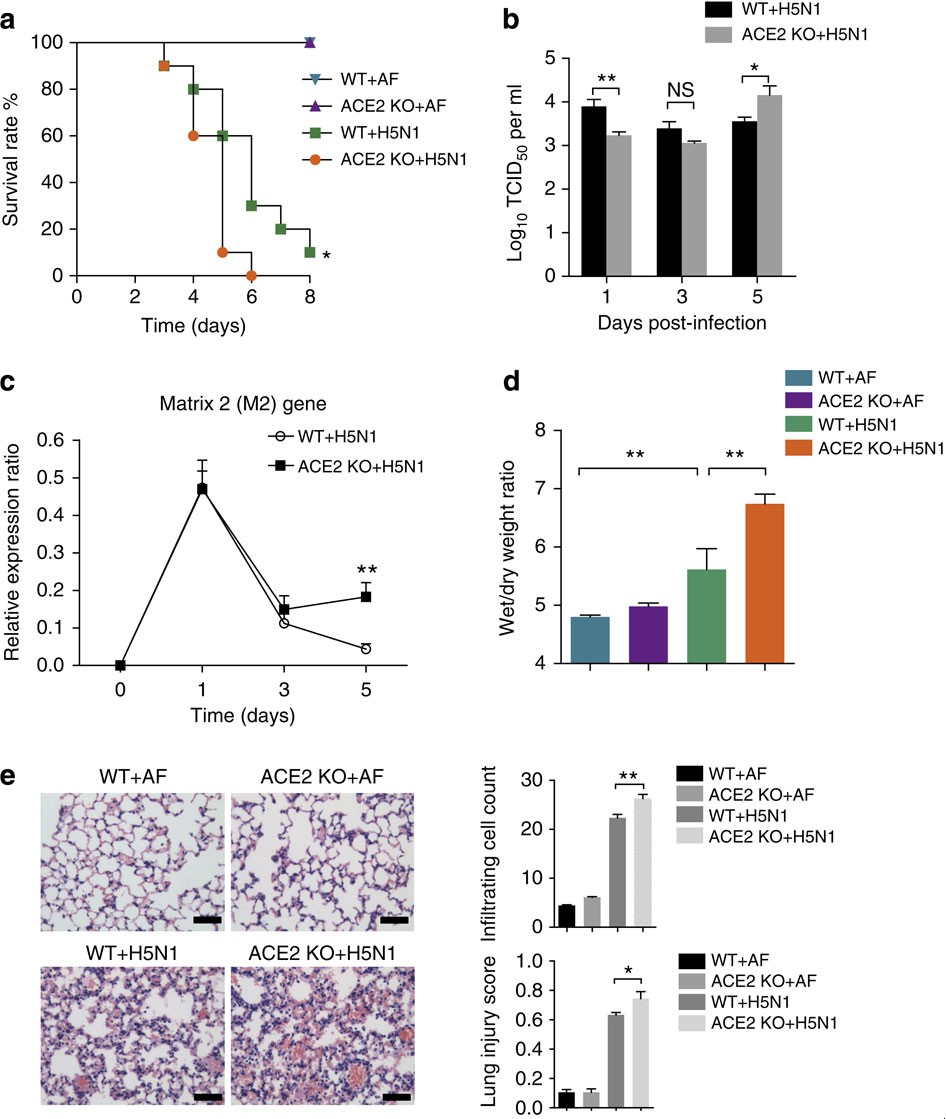
The high level of the hormone "Angiotensin II" in the blood is related to
the severe symptoms and subsequent consequences of avian influenza patients. Two
studies have shown that pharmacologically reducing the level of "Angiotensin II"
can alleviate disease symptoms in mice. Therefore, these findings may provide
biomarkers and potential treatment strategies to prevent future influenza
epidemics. LanjuanLi, Chengyu Jiang and colleagues report that patients infected
with H7N9 avian influenza virus have higher plasma levels of "angiotensin II"
than healthy people or people infected with swine flu.

We found that in patients infected with H7N9, the level of "angiotensin II", viral load, disease progression and mortality are related. The "angiotensin II" mortality prediction is based on other common clinical parameters (such as blood oxygen levels), which are the same or better than the established parameters.
In the second study, Jiang Chengyu and his colleagues found that compared with healthy people, people infected with the H5N1 avian influenza virus also had an increased level of "angiotensin II". In addition, they also reported that after infected mice with the H5N1 virus, their "angiotensin II" levels increased, while the expression of ACE2 (Angiotensin Converting Enzyme 2) decreased. ACE2 is a protein that can inactivate "Angiotensin II". Finally, the research team found that the use of human ACE2 improved the disease symptoms of mice infected with H5N1 and reduced the level of "angiotensin II". In summary, these two papers have important clinical significance and provide a new understanding of the pathogenesis of avian influenza patients. However, further research is needed to determine whether "angiotensin II" is a useful biomarker and to evaluate the potential efficacy of ACE2.